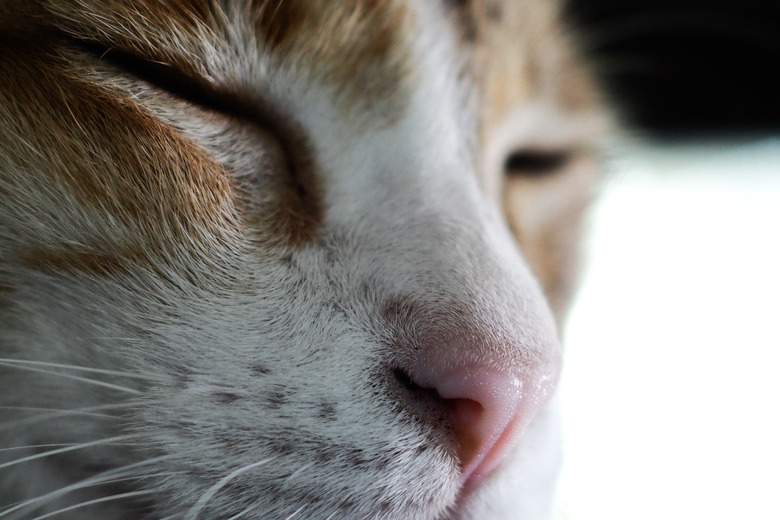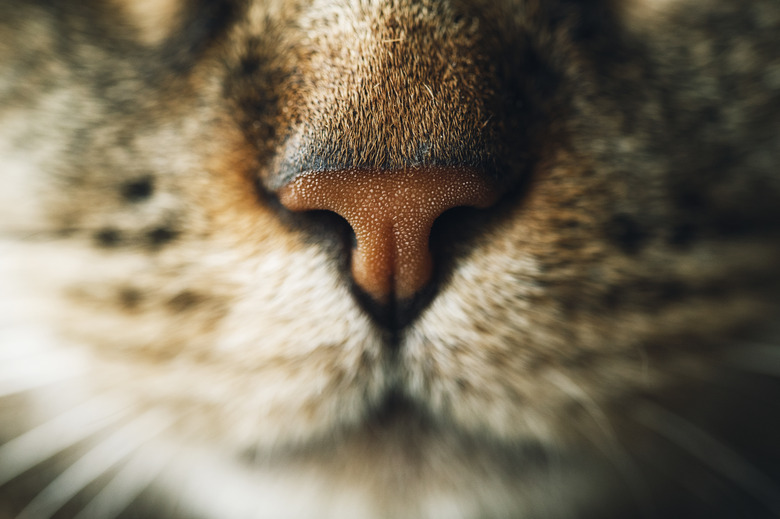Can Cats Smell Cancer Or Other Diseases In Humans?
Dogs, with their incredible sense of smell, can be trained to sniff out some ailments in humans, including low blood sugar and yes, cancer.
But what about cats? They're generally perceived as less tuned in to humans than dogs are (perhaps unfairly). But do they have the ability to sniff out human diseases?
Anecdotal evidence for cats smelling cancer
Anecdotal evidence for cats smelling cancer
There's some anecdotal evidence that cats have detected cancer in their humans. A woman claimed that her cat alerted her to her breast cancer by repeatedly jumping on the affected breast. A man also claimed that his cat warned him of his lung cancer by dragging his paw down the left side of the man's body, where doctors later found a large tumor.
So far, these anecdotal reports are all the evidence we have, and they're not much to go on. Unlike with dogs, there have been no formal studies examining cats' ability to sniff out cancer. This might simply be because cats are, on the whole, less studied than dogs, due in part to the popular perception that cats are "less trainable" or "less motivated."
This perception, however, has been proven untrue. Contemporary animal trainers are confident that the idea of the "untrainable cat" is a myth. They point out that cats (in addition to many other species of animals) have successfully learned to sit, stay, jump, ring a bell, and perform many other behaviors through the use of positive reinforcement training.
Indeed, with the growing knowledge and interest in positive reinforcement training, plenty of people are training their cats these days. There are even YouTube channels devoted to teaching cat parents how to do so.
So it's likely not impossible to train a cat to detect certain smells — maybe science just hasn't prioritized this enough yet.
Untapped smelling potential in cats
Untapped smelling potential in cats
Some experts do firmly believe that cats have the potential to sniff out disease, as well as perform other behaviors that could be useful to humans, such as sniff out bombs or survivors of disasters.
A 2017 paper published in the journal Applied Animal Behavior Science points out that cats have better "olfactory discrimination" than dogs do. Kristyn Vitale Shreve, who co-authored the paper with Monique Udell, believes that this ability might make cats even better at sniffing out these things than dogs are: "Given the importance of olfaction in cat sensory perception, cats could be trained to discriminate between a variety of odors, therefore serving in working roles for detecting specific humans, medical scent detection, bomb sniffing, or drug sniffing."
The bottom line
The bottom line
Some experts believe that cats may have the potential to sniff out diseases like cancer due to their advanced olfactory discrimination. However, because we have no research around the subject at this time, it's difficult to say definitively whether a cat can sniff out cancer. Here's hoping that changes soon.
Always check with your veterinarian before changing your pet's diet, medication, or physical activity routines. This information is not a substitute for a vet's opinion.
References
- NPR: Can Diabetes Alert Dogs Help Sniff Out Low Blood Sugar?
- Huffington Post: Cat Detects Owner's Breast Cancer Before Doctors, Saving Her Life
- UPI: Cat alerts owner to lung cancer
- Science Direct: Stress, security, and scent: The influence of chemical signals on the social lives of domestic cats and implications for applied settings


